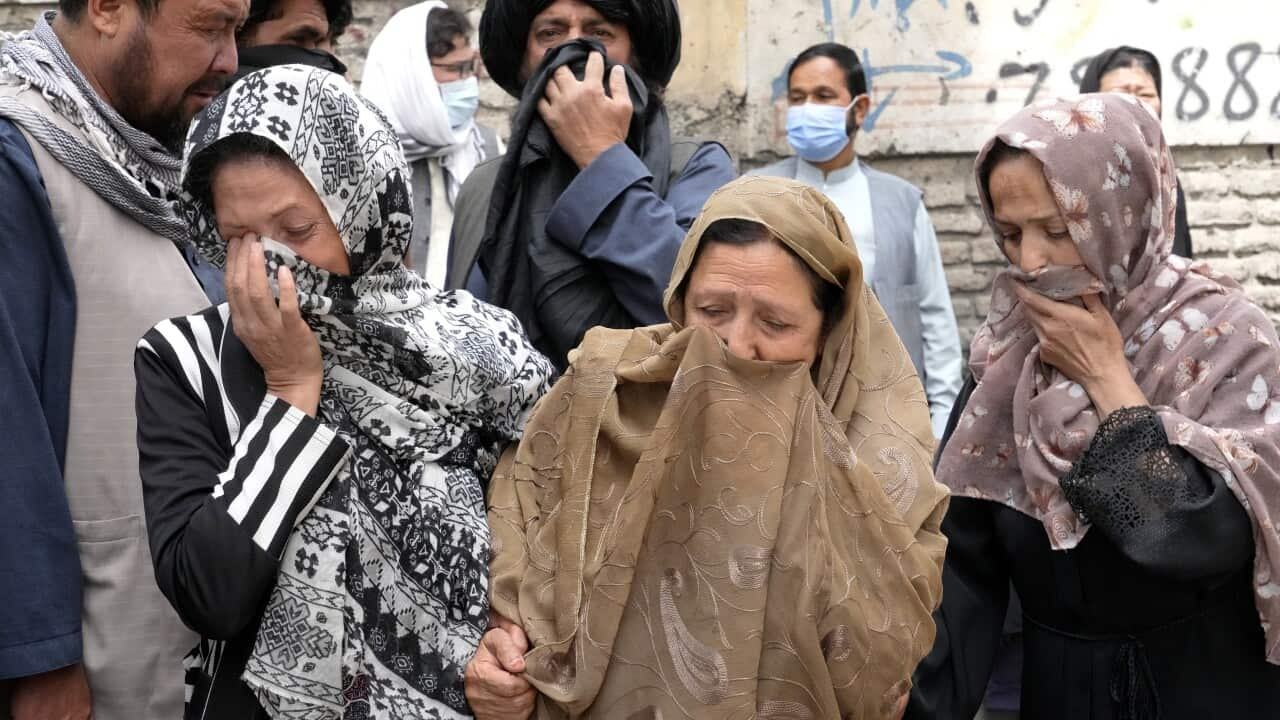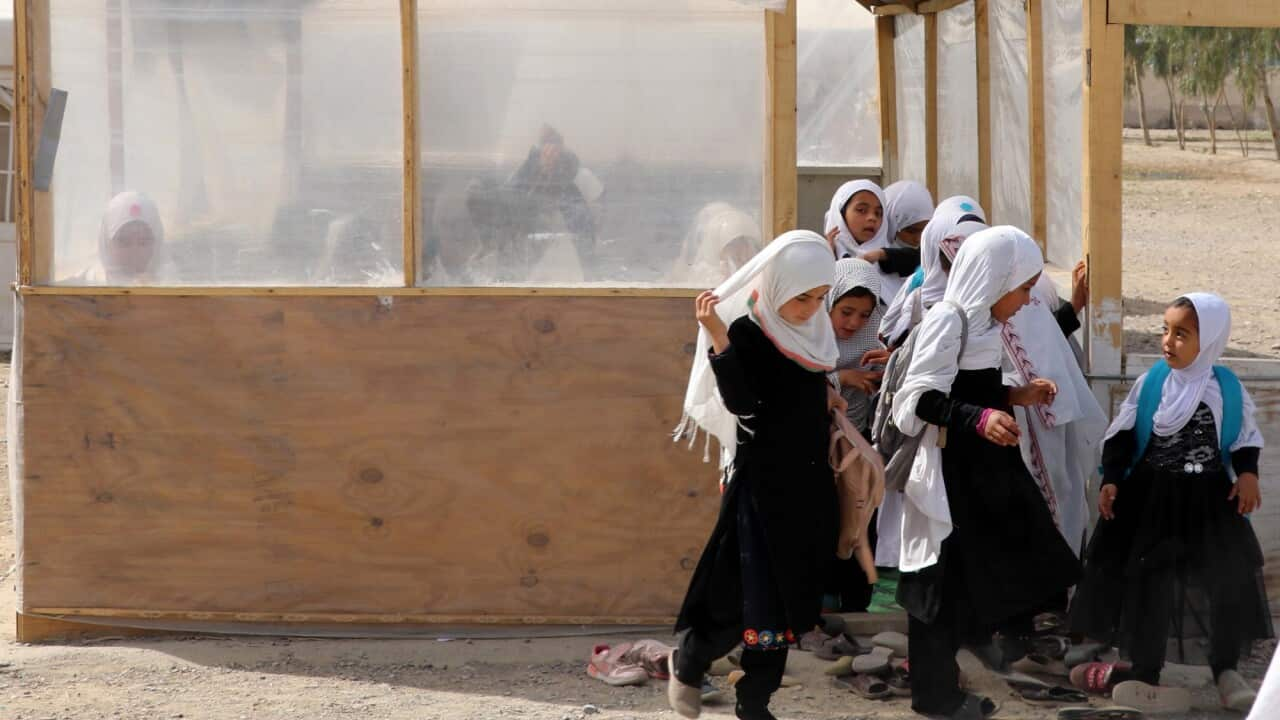At least six people have been killed, and 24 wounded, in two bomb blasts that struck a boys' school in a Shi'ite neighbourhood in the Afghan capital, police and hospital staff said.
There was no immediate claim of responsibility for the attack, which followed a lull in the violence over the cold winter months and after foreign forces withdrew last year.
The number of attacks in Afghanistan has significantly declined since the Taliban ousted the US-backed government in August, but the self-proclaimed Islamic State group has claimed several since then.
Several bodies were strewn outside the gate of the school in the densely populated Shi'ite Dasht-e-Barchi neighbourhood in Kabul, alongside patches of blood, burnt books and school bags, according to images posted on social media.
"We were leaving school and had just stepped out from the rear gate when the explosion occurred," Ali Jan, a student who was wounded in the first blast, told AFP at a hospital.
The second blast took place as rescuers arrived to ferry victims from the first explosion to hospitals.
"Some of our friends have lost hands, while some were covered in blood," said Saeed Rahmatullah Haidari, a student at the school.
"There were pieces of broken glass and pools of blood... my whole body was shaking."

Amnesty International has condemned the Taliban for failing to protect Afghans from minority groups following two explosions at a school in Kabul. Source: AAP / Ebrahim Noroozi
Women cried out as they scanned through pictures of victims posted on nearby walls by medics.
Kabul police spokesman Khalid Zadran told AFP the attack outside the Abdul Rahim Shahid school was caused by two improvised explosive devices, killing six people.
A grenade was also thrown at a nearby English language centre in the same area, wounding one person, he later said. Two hospitals said they were treating 24 wounded patients.
'Reprehensible attacks'
Amnesty International condemned Tuesday's "reprehensible attacks" against the Hazara community.
"It also shows that the Taliban, as the de-facto authorities, are failing to protect civilians, especially those from ethnic and religious minority groups, from harm," Amnesty International's South Asia Campaigner Samira Hamidi said in a statement.
Humanitarian group Save the Children's Afghanistan Country Director Chris Nyamandi condemned the blast.
"Save the Children is outraged and strongly condemns the reported attack on a high school today in Kabul. We're deeply saddened about reports that children have been injured, and possibly killed, in the blasts," he said in a statement.
The European Union's special envoy to Afghanistan, Tomas Niklasson, said those behind the "heinous" attacks must be held accountable, while the UN Secretary-General Antonio Guterres warned that attacks against civilians are "strictly prohibited under international humanitarian law."
The Dasht-e-Barchi neighbourhood is mainly home to the Hazara community and has been previously targeted by IS.
The Hazara community, which makes up between 10 and 20 per cent of the country's 38 million people, has long been the target of mass-casualty attacks, some blamed on the Taliban during their 20-year insurgency.
Since seizing power, the Taliban have regularly carried out raids on suspected IS hideouts, mainly in the eastern Nangarhar province.
Taliban officials insist their forces have defeated IS, but analysts say the group is a key security challenge.
It has claimed some of the deadliest attacks in Afghanistan in recent years.
In May last year at least 85 people - mainly girl students - were killed and about 300 wounded when three bombs exploded near their school in Dasht-e-Barchi.
No group claimed responsibility, but in October 2020, IS claimed a suicide attack on an educational centre in the same area that killed 24, including students.
In May 2020, the group was blamed for a bloody gun attack on a maternity ward of a hospital in the neighbourhood that killed 25 people, including new mothers.


